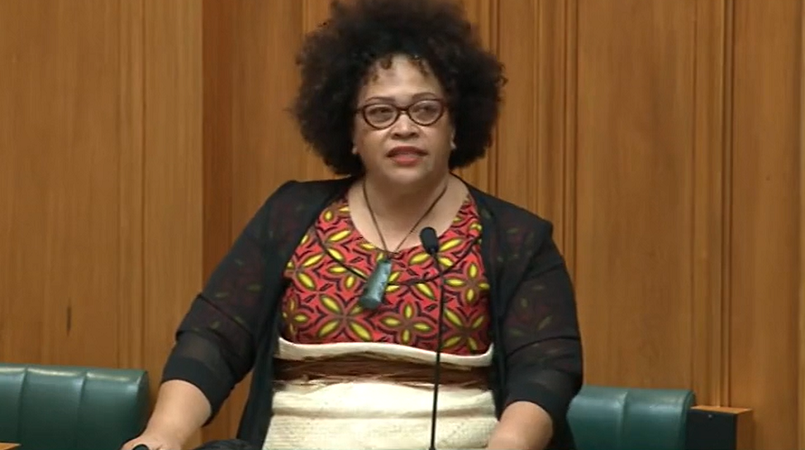
E pala le ma'a, a e le pala le upu - Even stones decay, but words endure.
The acknowledgement and reflection of the 1970s Dawn Raids is now forever etched into government records after a special Parliamentary debate.
All political parties in the debate expressed their sorrow towards Pasifika who were traumatised and impacted by the Dawn Raids.
For a couple of Labour's Pacific MPs, the Dawn Raids hit home.
Anahila Kanongata'a-Suisuiki relayed the words of her mother, who survived the Dawn Raids.
"I found refuge in my prayers to God to keep us safe and found peace in singing hymns as we leave our homes before dawn.
"Those were the words of Ailine Tupou Kanongata'a, wife of Siosiua Likiliki, and were overstayers from 1971-1978. Madam Speaker, they were my parents."
The Dawn Raids were also personal for Mana MP Barbara Edmonds.
"One early Tuesday morning, police and immigration officers undertook checks at his (Edmonds' uncle) job. My uncle was arrested while other members of my family looked on helplessly.
"On the Saturday, he was taken to the airport where my mother and father met him and had a few moments to say goodbye. He was deported back to Samoa.
"Two weeks ago, my father and my uncles witnessed the apology in town and I'm grateful they were alive to be able to do so."
Maori Party co-leader Rawiri Waititi didn't mince his words, saying what Pasifika faced in the 1970s was a result of racist government policies.
"What do the police see when they see brown faces? Criminals, violence, overstayer. But not brother, father, cousin, leader or activist.
"You are not overstayers, you are not a problem to be solved, you are not leeches to this country and you do not need to be assimilated."
The Dawn Raids started under Norman Kirk's Labour government in the early 1970s, before continuing under Robert Muldoon's National government in the mid-70s.
National Party leader Judith Collins says her party should have been a part of the formal apology alongside Labour.
"It was a shame on both Labour and National for that to have happened and you've got to own that in the Labour Party and stop just blaming National.
"That is why it is a shame that the opposition was not offered any opportunity to formally apologise until now."
The special debate was an opportunity for other parties to tweak the government's action following the apology.
Whereas education on the Dawn Raids will now be an option for high schools, Green Party MP Teanau Tuiono feels it should be compulsory.
"I don't think it should be voluntary, because the one thing I know about New Zealand - if it's uncomfortable, it gets swept under the carpet - and that should go with all parts of our history that are uncomfortable, whether it's the Land Wars, whether it was what happened in Samoa in terms of the Mau Movement and it must also happen with the Dawn Raids.
ACT MP Doctor James McDowell called on Labour to review their immigration policies to benefit Pacific peoples.
"They are understandably terrified at the prospect of submitting a request for a visa under Section 61 of the Immigration Act, because they know that if they're unsuccessful, they will almost certainly be arrested and deported.
"They also know that they could be putting their family members at risk under the Immigration Act. I urge the government to work with our Pacific communities and develop a way forward for people in these situations."
A petition by youth advocates Josiah Tualamali'i and Benji Timu called for the special debate on the Dawn Raids to take place.
The activists were in the House to witness the historic debate, and Timu says he enjoyed everyone's contribution to the conversation.
"We got to hear different points on the political spectrum, it wasn't just Labour speaking, it was everybody.
"I was really surprised by a lot of the comments actually made by Judith and Todd McClay and all of that. For everybody to say that this was a racist act, was really awesome."
Timu says for he and Tualamali'i, the work doesn't stop in holding the government to account.
"Whether it's another variation of the Dawn Raids, or whether it's other social issues that are happening, the work doesn't stop, but at the same time, it's good to have these little wins so we can celebrate the progress that happened over the last few months."
It's an event that traumatised Pasifika, but there's hope the fear can be put to rest as the acknowledgement and reflection of the Dawn Raids is engraved into New Zealand's history.
Photo PMN News Caption Anahila Kanongata'a-Suisuiki :
